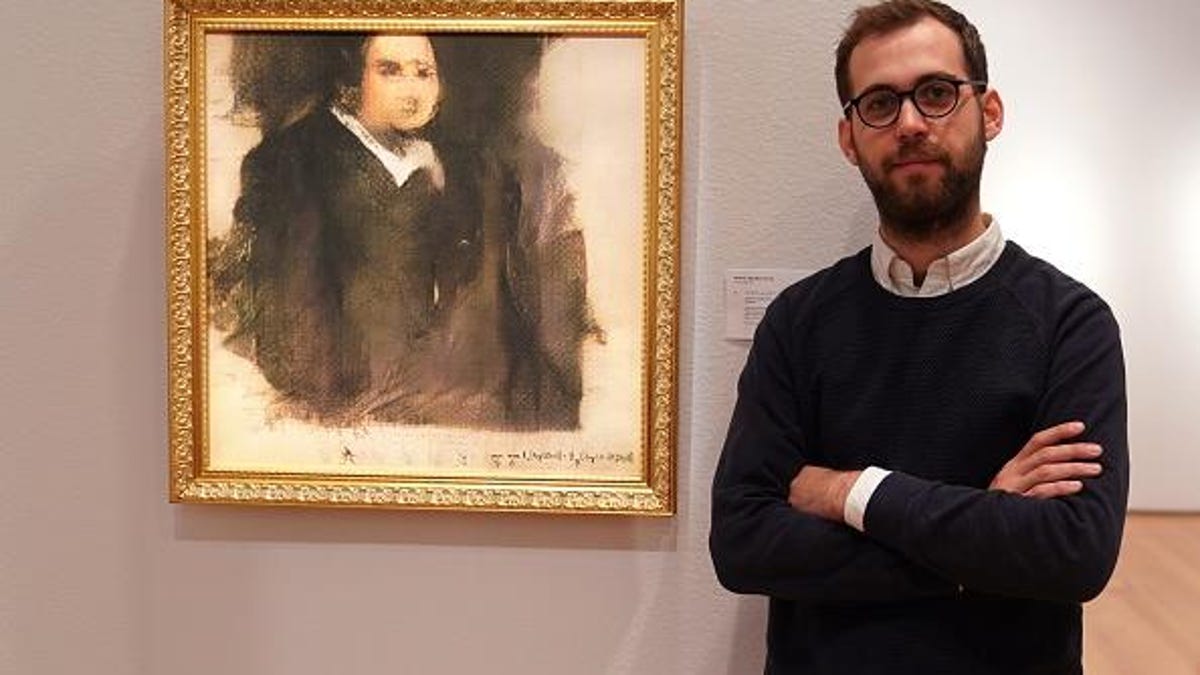AI-made portrait sells at Christie's auction for $432,500
A Picasso went for the same price.

Pierre Fautrel, co-founder of the team of French entrepreneurs called Obvious, which produces art using artificial intelligence, stands next to "Edmond de Belamy, from La Famille de Belamy."
A painting generated by artificial intelligence sold at auction Thursday for nearly half a million dollars.
The painting "Edmond de Belamy, from La Famille de Belamy" sold at Christie's New York for $432,500 including fees, according to The New York Times. Christie's estimated auction price was $7,000 to $10,000. The buyer bid by phone and remains anonymous.
The portrait was created by Obvious, a French art collective, and marketed by Christie's as the first AI-made painting sold at an auction, the Times said. The work sold for the same price as Pablo Picasso's linocut "Buste de femme d'apres Cranach le Jeune." Andy Warhol's screen-print series "Myths" also sold at the auction, for $780,500.
Not everyone is happy about the sale. Some criticized the methods Obvious used, saying the Generative Adversarial Network algorithm (GAN) it employed has been used by artists for years, according to CNN. Mario Klingemann, an artist known for using machine learning, told the Times that "Edmond de Belamy" was like "a connect-the-dots children's painting."
In a statement, Obvious tipped its hat to others who've used AI in art.
"We would like to thank the AI community, especially to those who have been pioneering the use of this new technology, including Ian Goodfellow, the creator of the GAN algorithm, who inspired the name of the Famille de Belamy series, and artist Robbie Barrat, who has been a great influence for us," Obvious said. "It is an exciting moment and our hope is that the spotlight on this sale will bring forward the amazing work that our predecessors and colleagues have been producing."
Barrat used GAN to create bizarre nude portraits. The AI program mainly just painted people as "blobs of flesh with tendrils and limbs randomly growing out," Barrat said.
Here are some AI generated nude portraits I've been working on🍑
— Robbie Barrat (@DrBeef_) March 27, 2018
Usually the machine just paints people as blobs of flesh with tendrils and limbs randomly growing out - I think it's really surreal. I wonder if that's how machines see us... pic.twitter.com/tYgzCHGfse

